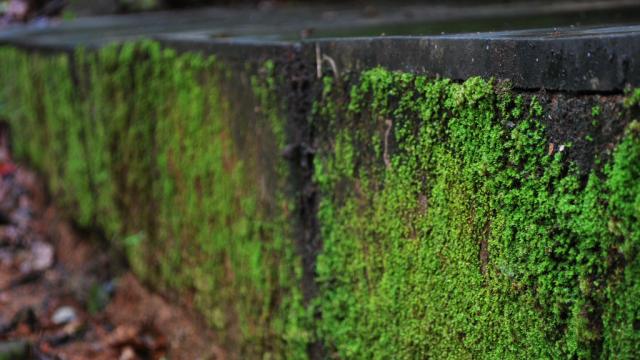Image: Harsha K R/Flickr
What was life really like here on planet Earth before animals were big enough to leave fossils behind? How did living things turn from dinky capsules of genetic material into the intelligent, complex organisms that do things like fart and type curse words into posts on the internet? Scientists think they have found the answer… in algae steroids.
A team of researchers in Australia and Germany think they have got an idea, based on the increasing diversity of organic compounds found in rock samples. They propose that somewhere around 650 million years ago, a whole lot of ice melted, yielding lots of nutrients that algae took advantage of, breaking the reign of less complex bacteria.
“The ‘Rise of Algae’ created food webs with more efficient nutrient and energy transfers,” they write in the study published yesterday in the journal Nature. “driving ecosystems towards larger and increasingly complex organisms.”
The study didn’t look at fossils, but instead, peered into very old rocks to look at what sort of biological compounds they could find, as well as the complexity. The researchers noted that prior to 717 million years ago, rocks contained mostly one steroid-derived compound, called cholestrane. From that period until 660 million years or so, the Earth witnessed a massive glacial period, turning our orb into a giant snowball. “Glaciations of this duration and extent would have been a profound ecological hiatus,” they write.
After that came a meltdown, and samples contained far-higher proportions of other steroid-derived compounds called ergostane and stigmastane. The researchers hypothesize that all of the new nutrients like phosphates from the melted glaciers would have allowed complex algae to take the place of simpler bacteria, the dominant organism at the time. This could have led to the algae flourishing and producing more complex molecules, leaving behind more kinds of degraded steroids than existed before the meltdown, and evolving into more complex things.
But the BBC noted that the interpretation is just one of several — after all, humans weren’t around 650 million years ago to actually see what was going on. Nick Butterfield from Cambridge University told them that it’s possible that more sponges meant more algae, too. The whole thing is like trying to tell the social status of a human family using only the bones they left over from dinner.
But if you’re in the mood for a new ancestor, there’s no harm in thanking algae for your existence.
